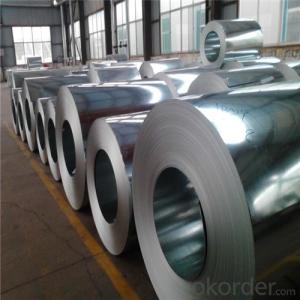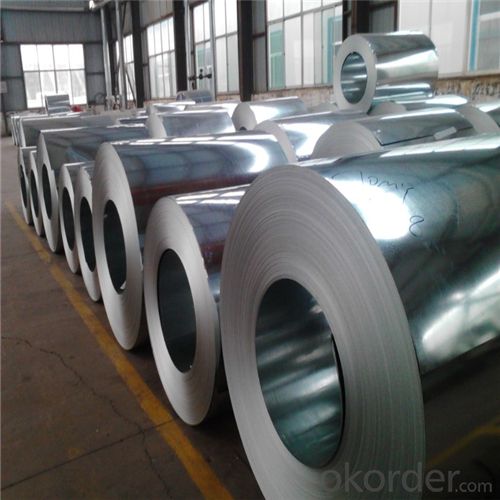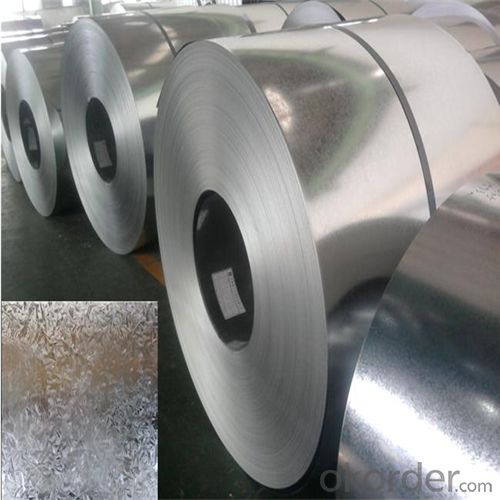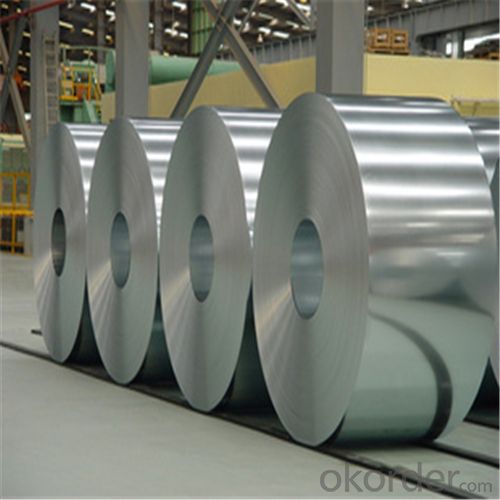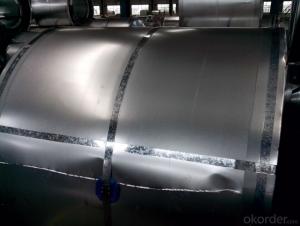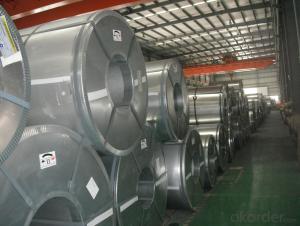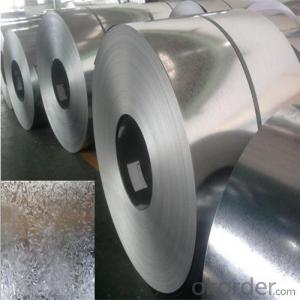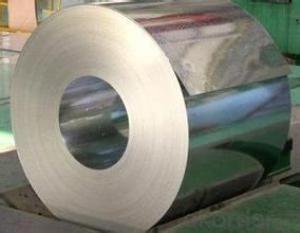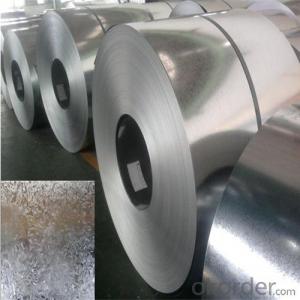Hot-Dip Galvanized Steel Coil Used for Industry with the Best Quality
- Loading Port:
- Tianjin
- Payment Terms:
- TT OR LC
- Min Order Qty:
- 25 m.t.
- Supply Capability:
- 8000 m.t./month
OKorder Service Pledge
OKorder Financial Service
You Might Also Like
Hot-Dip Galvanized Steel Coil Used for Industry
1.Structure of Hot-Dip Galvanized Steel Coil Description
Hot-dip galvanized steel coils are available with a pure zinc coating through the hot-dip galvanizing process. It offers the economy, strength and formability of steel combined with the corrosion resistance of zinc. The hot-dip process is the process by which steel gets coated in layers of zinc to protect against rust. It is especially useful countless outdoor and industrial applications.
2.Main Features of the Hot-Dip Galvanized Steel Coil
•High Purity
•Easy control and operation
•High strength
•Fast melting
•Competitive price
•Best Service
3. Hot-Dip Galvanized Steel Coil Images
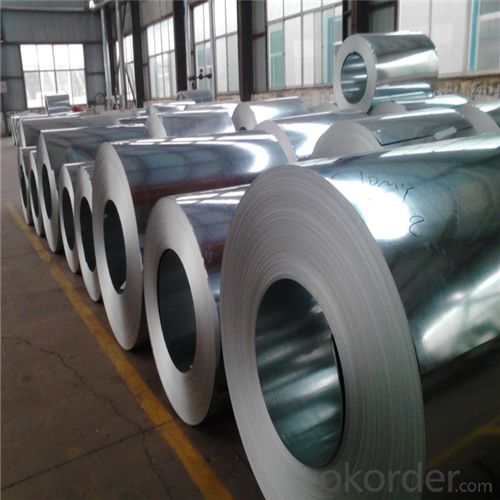
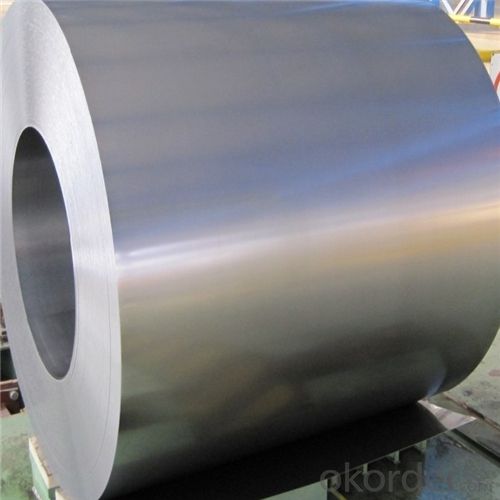
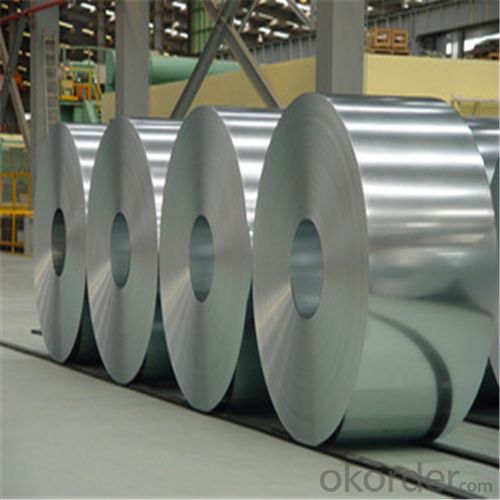
4. Hot-Dip Galvanized Steel Coil Specification
Hot-Dip Galvanized Steel Coil | |
Thicknenss | 0.10mm-5.00mm |
Width | 2000mm max |
Coating mass | 30-600g/㎡ |
Spangle | Regular/Minimized/Zero Spangle |
Coil inner diameter | 508-610mm |
Surface treatment | Chromated/non chromated, Oiled/non oiled, Anti finger print |
5.FAQ of Hot-Dip Galvanized Steel Coil
We have organized several common questions for our clients,may help you sincerely:
①How about your company?
A world class manufacturer & supplier of castings forging in carbon steel and alloy steel,is one of the large-scale professional investment casting production bases in China,consisting of both casting foundry forging and machining factory.
②How to guarantee the quality of the products?
We resolutely put an end to unqualified products flowing into the market. At the same time, we will provide necessary follow-up service assurance.
- Q: How are steel coils used in the manufacturing of storage shelves?
- Steel coils are used in the manufacturing of storage shelves by being cut and shaped into the desired size and design. The coils are typically processed through a roll forming machine which bends and molds the steel into the required shape for the shelves. This process allows for high efficiency and precision in creating uniform and durable storage shelves.
- Q: How are steel coils coated or painted?
- Steel coils are coated or painted through a process called coil coating, which involves cleaning the surface, applying a primer, and then adding a topcoat using various techniques such as roll coating, spray coating, or electrostatic coating. This ensures that the steel coils have a protective layer and an aesthetically pleasing finish.
- Q: What are the different types of steel coil loading and unloading methods used during processing?
- Some of the different types of steel coil loading and unloading methods used during processing include overhead cranes, forklifts, coil cars, and coil transfer systems.
- Q: What are the different types of coil leveling machines?
- There are three main types of coil leveling machines: precision levelers, corrective levelers, and stretcher levelers.
- Q: What are the different surface treatments applied to steel coils?
- Some of the different surface treatments applied to steel coils include galvanizing, which involves coating the steel with a layer of zinc to protect it from corrosion, painting or powder coating to enhance the aesthetics and provide additional protection, and passivation to remove any impurities on the surface and improve its corrosion resistance.
- Q: How are steel coils protected during storage and transportation?
- Steel coils are protected during storage and transportation through various measures. These include wrapping them with protective materials such as plastic or paper, using wooden or metal cradles to provide support and prevent damage, securing them with steel bands or straps to prevent movement, and storing them in well-ventilated and dry areas to prevent corrosion.
- Q: How are steel coils used in the manufacturing of aerospace components?
- Steel coils are used in the manufacturing of aerospace components as they provide a reliable and durable material for various applications. The coils are typically cut and formed into different shapes to create components like structural supports, brackets, and fasteners. These components play crucial roles in the construction and assembly of aerospace systems, ensuring strength, stability, and safety in the final products.
- Q: How are steel coils inspected for surface defects?
- Steel coils are inspected for surface defects using various techniques such as visual inspection, automated systems, and magnetic particle inspection. Visual inspection involves trained personnel examining the coils for any visible defects or irregularities. Automated systems utilize cameras and sensors to detect defects and anomalies on the coil surfaces. Magnetic particle inspection, on the other hand, involves magnetizing the coil and applying magnetic particles to reveal any surface defects through the formation of visible indications. These methods ensure that steel coils meet quality standards before further processing or shipment.
- Q: How are steel coils used in the production of automotive parts?
- Steel coils are used in the production of automotive parts as they serve as the primary raw material for manufacturing various components such as body panels, chassis, and structural parts. These coils are processed through different techniques like cutting, stamping, and welding to shape and form the desired parts. The strength and durability of steel make it an ideal material for automotive applications, ensuring the safety and performance of vehicles.
- Q: I have a job where I'm required to wear ANSI certified steel toed boots or shoes(so long as its ANSI). Thing is, I'm a vegan. I do NOT want to buy leather, and I will go to great lengths to buy a non leather shoe/boot I can wear on the job! I AM currently borrowing my dad's leather ANSI boots, but would very much love to be able to rock a pair of cruelty free boots/shoes on the job!It does not have to be certified vegan just all man-made materials and no leather/sued and other such stuff where animals have to die. It would make me no better than the massive slaughterhouse industries and such. Valueing money of ver live/morals. I don't want one of the first things I need to do in my manufacturing job is compromising my morals. :3So if you know of an ANSI vegan friendly boot brand PLEASE TELL ME! *gets on knees begging*Money isn't really an option for me, I'll just continue borrowing my dad's boots till I save up enough!Thanks in advance! :D
- Sears okorder /
Send your message to us
Hot-Dip Galvanized Steel Coil Used for Industry with the Best Quality
- Loading Port:
- Tianjin
- Payment Terms:
- TT OR LC
- Min Order Qty:
- 25 m.t.
- Supply Capability:
- 8000 m.t./month
OKorder Service Pledge
OKorder Financial Service
Similar products
Hot products
Hot Searches
Related keywords
